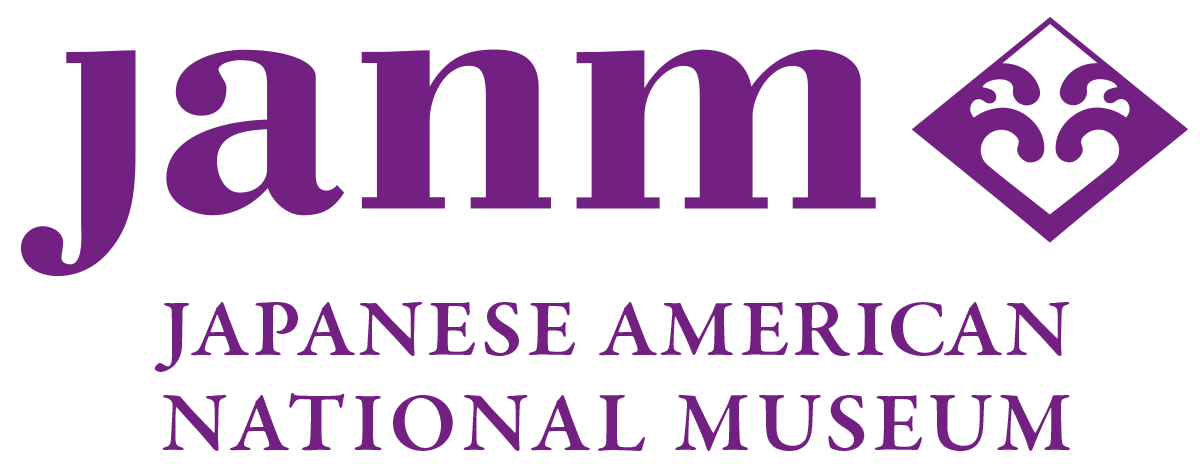FOR IMMEDIATE RELEASE - November 1, 2004
PRESS CONTACTS:
Chris Komai - ckomai@janm.org - 213-830-5648

Fujima Kansuma to Receive Cultural Ambassador Award at Japanese American National Museum's Annual Dinner Feb. 5
Madame Fujima Kansuma, a legendary performer and instructor of Japanese classical dance, will be the second recipient of the Japanese American National Museum’s Cultural Ambassador Award at the institution’s 2005 Annual Gala Dinner and Silent Auction set for Saturday, February 5, 2005, at the Century Plaza Hotel & Spa.
The dinner’s theme is “Teaching from the Heart: Honoring Educators from America’s Concentration Camps”. During World War II, the U.S. government unconstitutionally imprisoned 120,000 Americans of Japanese ancestry in domestic concentration camps. Many of those incarcerated were school-age students and the makeshift schools in these camps required qualified teachers. Because the camps were located in some of the most desolate areas west of the Mississippi River, these teachers were required to live amongst the inmates under harsh conditions with few resources.
The Japanese American students recognized the contributions of their teachers and the sacrifices they made so the students could receive an education. Some stayed in touch with their instructors for the last sixty years. The Annual Gala Dinner will be an opportunity to thank this group of dedicated educators, including those nominated by former inmates. A handful of these educators are still living and a group of them will be recognized at the event.
Kansuma herself performed and provided instruction in the camps during the war. Born Sumako Hamaguchi in San Francisco, she began training in Japanese dance at the age of nine. Traditionally, a Japanese child begins training in dance on the sixth day of the sixth month of their sixth year, but Sumako persisted through many challenging years while training in Japan. A student of Kikugoro Onoe IV, Kansuma studied acting, dancing, kimono dress and etiquette, samisen and tokiwasu music. Granted the professional name of Kansuma in 1938, she returned to America and opened her dance studio in the Los Angeles hotel owned by her father.
When the war began, Kansuma and her parents were incarcerated. She wanted to ease the burdens of her fellow inmates by performing, but she had only a wig, a kimono, a fan and one recording. “When I went to camp,” she recalled, “they asked me to dance, and we didn’t have anything. So I used chopsticks and we made chopsticks into kansaji, put it in your hair, and I performed.”
Eventually, the government authorities allowed Kansuma, under armed guard, to return to Los Angeles to retrieve her costumes and records. She then was permitted to perform and teach. The importance of her work was underlined by the fact she taught and performed at a number of the different camps until the war’s end.
After the war, Kansuma returned to Los Angeles and embarked on a strenuous series of performances. She juggled a schedule that included touring, production of Japanese cultural events and programs and teaching. In her long and distinguished career, Madame Fujima Kansuma has taught more than 1,000 dancers, 26 (including her daughter Miyako Lana) who have been granted professional standing by kabuki grandmasters. Her troupe, Fujima Kansuma Kai, has performed extensively, including in the 1984 Los Angeles Olympics opening, the 1980 Tournament of Roses Parade, at numerous Japanese Festivals at Disneyland and at the Dorothy Chandler Pavilion. Madame Fujima was the official choreographer for the 1986 Nisei Week Japanese Festival.
Madame Fujima Kansuma was awarded in 1985 the Fifth Class Order of the Precious Crown from the Government of Japan in recognition of her contributions toward encouraging the appreciation of Japanese culture in the United States. In 1987, she received the National Heritage Fellowship Award from the National Endowment for the Arts. The award was presented in recognition of her lifetime achievements, artistic excellence and contributions “to our nation’s traditional arts heritage.”
Madame Fujima Kansuma is the second recipient of the National Museum’s Cultural Ambassador Award. At the 2004 Annual Gala Dinner, bonsai master John Naka became the inaugural recipient.
The National Museum’s Annual Gala Dinner is its major fundraising event. The event is co-chaired by Ernest Doizaki, American Fish & Seafood; Tracey Doi; Toyota Motor Sales, USA; Stephen Kurumada, DDS; Jack Morey, The J. Morey Company; Paul Shishima, Sasaki Shishima & Co.; and Gerald Yamada, O’Connor & Hannan, LLP. Platinum sponsors for the Annual Gala Dinner include American Airlines, George and Sakaye Aratani, The Boeing Company, Northrop Grumman Corporation, Bill and Carol Ouchi, The Pacific Bridge Companies, Paul and Hisako Teriyaki, and Toyota Motor Sales, U.S.A., Inc.
The evening’s program includes the announcement of the winner of the brand-new luxury hybrid SUV 2005 Lexus RX 400h, presented by Toyota Motor Sales, U.S.A., Inc. as a benefit to the National Museum. Previous opportunity drawings for Lexus sedans have raised over $100,000 each for the National Museum. Opportunity tickets start at $25 and five for $100. The program also includes the annual Bid for Education, which directly supports National Museum programming, including providing transportation for school tours.
Dinner sponsorship packages are Platinum ($10,000); Gold ($5,000); Silver ($3,500); and Bronze ($2,250). Tables for non-profit community groups are $1,500. Individual tickets are $500 (Gold); $350 (Silver); and $225 (Bronze). Dinner Journal sponsorships are also available beginning at $175 for business cards. Deadline for the Dinner Journal is November 29, 2004.
Click here to download a dinner sponsorship brochure.
For more information, contact the Japanese American National Museum at (213) 830-5688. For those calling outside of Los Angeles, call (800) 461-5266, ext. 5688.
